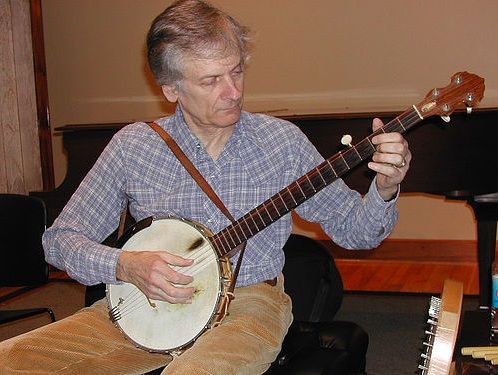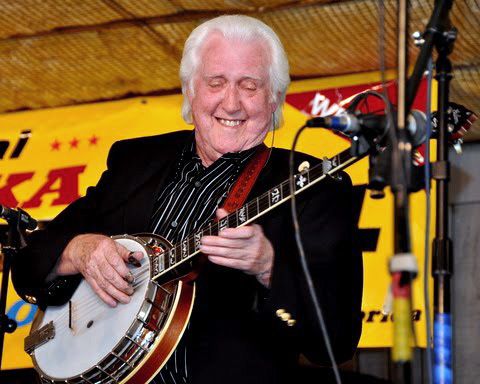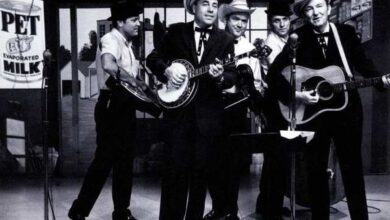Ralph Stanley: The Soulthe Future of AI Voice Modeling

Introduction
Ralph Stanley, an iconic figure inside the global of bluegrass, has left an indelible mark on American song. His haunting voice and unique fashion have encouraged endless artists and fans alike. In current years, advancements in synthetic intelligence (AI) have enabled the introduction of voice fashions that could mimic the tones and forms of mythical musicians like Stanley. This article explores the legacy of Ralph Stanley, the technological evolution of AI voice modeling, and the potential impact of such technology on the protection and propagation of bluegrass song.
The Legacy of Ralph Stanley
Ralph Stanley, born on February 25, 1927, inside the Clinch Mountains of Virginia, became a pioneer of bluegrass and Appalachian song. Alongside his brother Carter, Ralph formed The Stanley Brothers and the Clinch Mountain Boys in 1946, a band that would turn out to be one of the maximum influential groups inside the history of bluegrass.
Ralph Stanley’s voice became a key detail of his music’s distinct sound. His excessive, lonesome singing fashion conveyed a deep sense of emotion and spirituality, resonating with listeners across generations. Songs like “O Death,” “Man of Constant Sorrow,” and “Angel Band” exhibit his capacity to infuse traditional bluegrass with a profound emotional intensity.
Stanley’s contribution to bluegrass and antique-time song cannot be overstated. He became a grasp of the clawhammer banjo style and helped to popularize this approach, which became a trademark of the bluegrass style. Over the route of his career, Ralph Stanley received severa accolades, along with a Grammy Award for his contribution to the soundtrack of the movie O Brother, Where Art Thou? His influence on the genre stays sturdy even after his passing in 2016.
The Evolution of AI Voice Modeling
Artificial intelligence has made extensive strides in current years, in particular in the realm of voice synthesis and modeling. AI voice fashions are created through schooling algorithms on big datasets of recorded speech. These fashions can learn to reflect the tonal qualities, pitch, and inflections of a specific voice, allowing them to generate speech or singing that closely resembles the unique source.
Early attempts at voice synthesis have been rudimentary, regularly resulting in robotic and unnatural-sounding voices. However, with the appearance of deep mastering techniques and greater state-of-the-art algorithms, AI voice models have turn out to be an increasing number of sensible. Modern voice synthesis systems can now seize the diffused nuances of human speech, making it viable to recreate the voices of famous individuals with amazing accuracy.
Ralph Stanley and AI Voice Modeling

Given Ralph Stanley’s precise voice and its cultural importance, it is unsurprising that there was hobby in developing an AI model of his voice. Such a model might allow fanatics to revel in new interpretations of Stanley’s track and ensure that his legacy maintains to persuade destiny generations.
To create an AI voice version of Ralph Stanley, developers would want access to large recordings of his making a song and speaking voice. These recordings would be used to train the AI system, allowing it to study the particular characteristics that define Stanley’s vocal fashion. The ensuing version ought to then be used to generate new performances of conventional bluegrass songs or even to create completely new compositions in Stanley’s voice.
Ethical Considerations
While the chance of an AI model replicating Ralph Stanley’s voice is interesting, it also increases several moral questions. One main situation is the issue of consent. Since Stanley is no longer alive, acquiring permission to use his voice on this way is not possible. This raises questions about who, if anybody, has the proper to authorize the introduction and use of this sort of model.
Another concern is the capacity for misuse. AI-generated voices may be used to create recordings that misrepresent the original artist’s intentions or beliefs. For instance, an AI version of Ralph Stanley’s voice can be used to carry out songs that he might in no way have chosen to sing. This ought to cause a distortion of his legacy and deceive lovers approximately his inventive vision.
There is likewise the wider difficulty of authenticity. While AI voice models can intently mirror the sound of a selected voice, they cannot capture the genuine spirit and purpose behind the authentic performances. Music is a deeply private and expressive artwork shape, and a few argue that no set of rules, regardless of how advanced, can actually mirror the emotional depth and humanity of a stay overall performance.
The Future of Bluegrass and AI
Despite these ethical issues, there is no denying that AI voice modeling has the capability to play a good sized position in the future of song. For bluegrass and other conventional genres, AI may be a powerful device for renovation and education. By creating accurate fashions of iconic voices like Ralph Stanley’s, destiny generations could gain a deeper expertise and appreciation of the style’s roots.
Moreover, AI may be used to introduce bluegrass to new audiences. For instance, AI-generated performances could be included into interactive educational tools or digital fact stories, allowing customers to explore the music of Ralph Stanley and different bluegrass legends in a more immersive and engaging way.
However, it is vital that any use of AI on this context is approached with care and admire. Developers and musicians alike ought to keep in mind the ethical implications of using AI to replicate the voices of deceased artists. Transparent communique with enthusiasts and the general public might be vital in making sure that this era is used in a manner that honors the legacy of Ralph Stanley and different track legends.
Conclusion
Ralph Stanley’s voice is a cornerstone of bluegrass song, and his impact is still felt within the style today. As AI generation advances, the possibility of making an AI model of Stanley’s voice offers each thrilling possibilities and extensive challenges. While this type of version should assist to preserve and sell bluegrass tune for future generations, it additionally raises crucial moral questions about consent, authenticity, and the ability for misuse.



